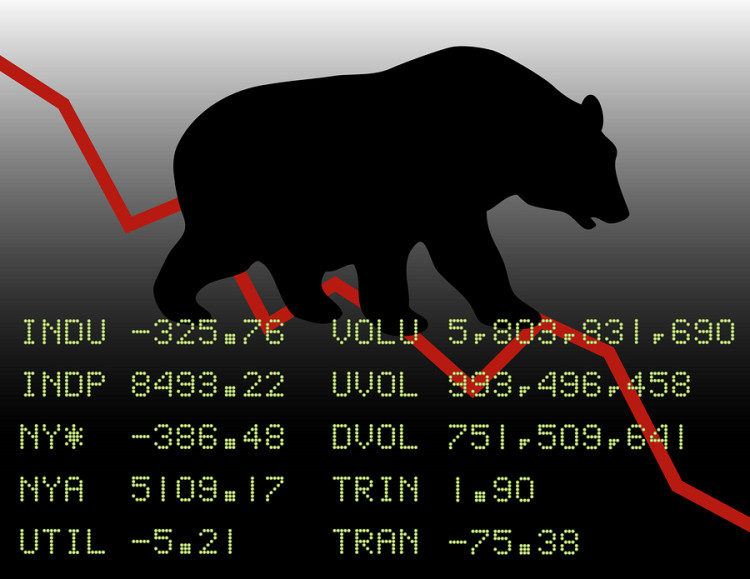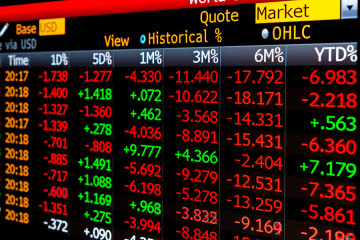Hedge Funds Harvest Bearish Crop Bets Too Soon as Glut Expands

©2015 Bloomberg News
NPY8GFSYF01S
(Bloomberg) — Hedge funds retreated from bearish bets on agricultural commodities too soon as the U.S. government said crop supplies will keep getting bigger.
Speculators cut the net-short position in wheat, dumping wagers on declines at the fastest pace since 2013, just before prices tumbled for three days. Money managers also reduced their bearish soybean position before futures fell to the lowest in almost five years.
The U.S. Department of Agriculture raised its outlook for global production of wheat and soybeans last week and said that world and domestic corn inventories will be bigger than previously forecast. Expanding gluts have kept the Bloomberg Agriculture Index trapped in a bear market for two years.
“We do have adequate inventories and adequate crops,” said Gillian Rutherford, who helps oversee $20 billion as a commodities portfolio manager at Pacific Investment Management Co. in Newport Beach, California. “It’s hard to think prices will find upward support.”
The combined position across 11 agricultural products was a net-short holding of 13,322 contracts as of June 9, U.S. Commodity Futures Trading Commission data published three days later show. That compares with 208,561 contracts two weeks earlier, which was the most bearish outlook since the data begin in 2006.
Food Prices
With farmers collecting bigger harvests, global food prices have plunged to the lowest since 2009 and costs have dropped for companies including ethanol maker Archer-Daniels-Midland Co. The Bloomberg Commodity Index fell 3.6 percent this year, while the Bloomberg Agriculture Index of eight farm products slumped 12 percent. The MSCI All-Country World Index of equities advanced 3.4 percent.
Grains aren’t the only crops saddled with excess supplies. Global sugar production will top demand for a fifth straight year in 2015, Paris-based Sucres Et Denrees said in a report last week. While world cotton inventories will drop in the season that starts Aug. 1, they’ll still be within 4 percent of the all-time high reached this season, the USDA said June 10.
This year’s U.S. growing season is just getting under way, leaving crops vulnerable to shocks from extreme weather.
Rains forecast this week will continue to hamper soybean plantings in parts of the U.S. Midwest, according to MDA Weather Services in Gaithersburg, Maryland. In Missouri and Kansas, farmers have seeded less than half of what’s normal for this time of year, USDA data show. There’s “significant” concern over disease risk for wheat crops in parts of the Great Plains, according to DTN.
Wheat Shocks
“Just speaking short term, wheat will be a volatile based on the weather,” said James Govan, an investment manager at Baring Asset Management, who helps oversee $163 million. “What one would say is we have a lot of stocks to buffer us from a weather shock, but if we get a severe weather shock, that will have an impact on the grain prices.”
Before the USDA’s crop update on June 10, wheat had rallied 16 percent since reaching a five-year low in early May. Flooding in Oklahoma and Texas raised concerns that production of the winter variety would decline. Instead, the rains helped to replenish dry soils and the agency said that output will be bigger than analysts expected.
Expanding production will help to push domestic wheat stockpiles to 814 million bushels in the season that ends in May, the most in five years, USDA data show. That compares with 793 million estimated last month. Analysts in a Bloomberg survey forecast 794 million, on average.
“The flooding happened at the right time,” said Frances Hudson, a global thematic strategist at Standard Life Investments in Edinburgh, which oversees $383 billion. Rains “boosted wheat production, and I think that could be because large parts of the U.S. seem to be more drought prone,” she said.
–With assistance from Megan Durisin in Chicago.
To contact the reporter on this story: Joe Deaux in New York at jdeaux@bloomberg.net To contact the editors responsible for this story: Millie Munshi at mmunshi@bloomberg.net Joe Richter







No Comment